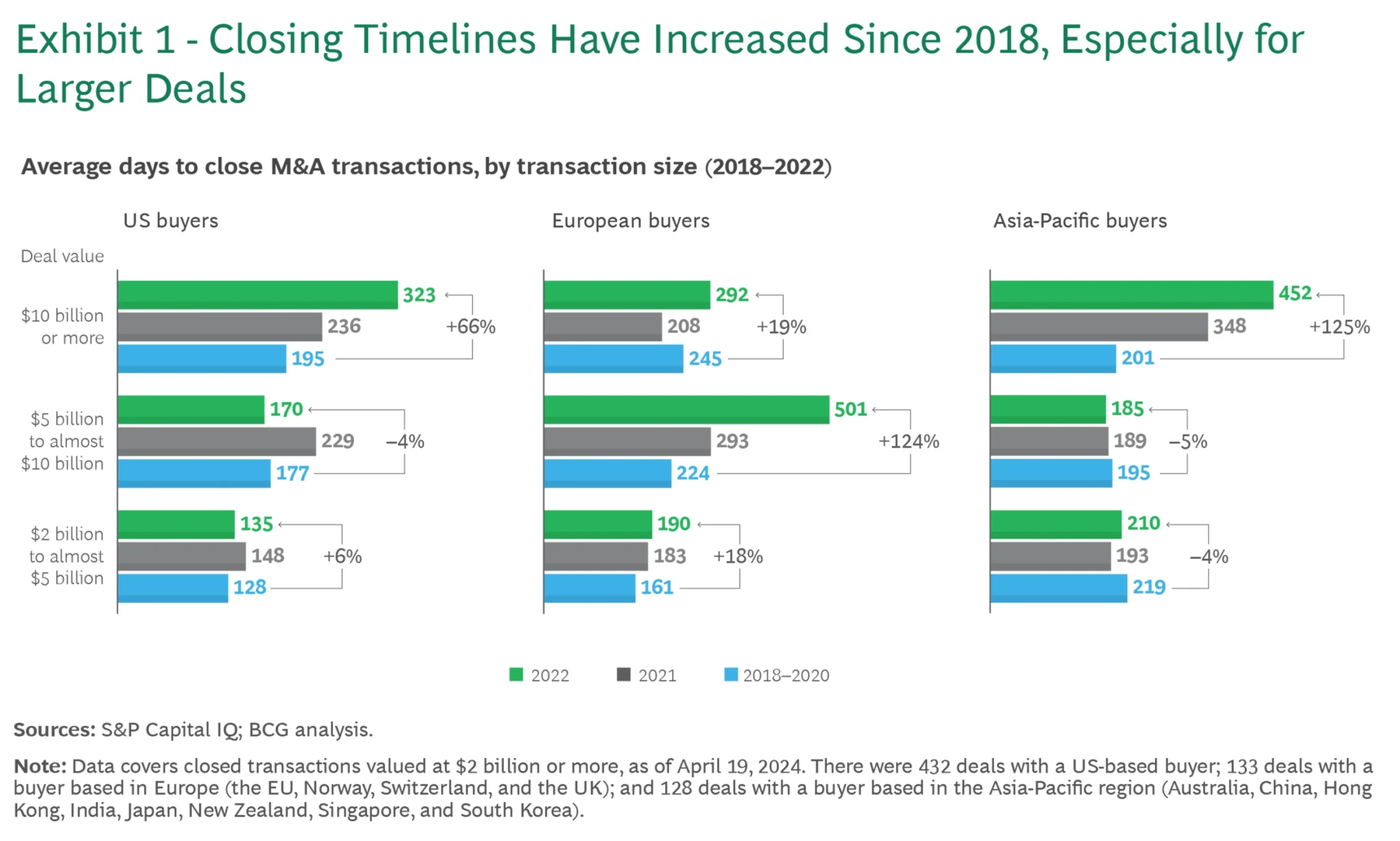
Every deal is different, with different factors affecting a successful transaction. Failure is always a high possibility, with The Harvard Business Review reporting up to 90% of M&A deals fail, and while each deal is different, time is a major factor in missed M&A opportunities.
The Boston Consulting Group reported deal closures took longer in the period from signing to closing increased in the US and Europe from 2018 through 2022.
- Approximately 40% of transactions took longer to close than the timeline estimated in the deal announcement.
- Transactions with higher announced synergies, either as a percentage of deal value or in absolute terms, took 30% longer than others to close.
 If you ask Gemini, Google’s AI model, to scrape the internet barrel “between 70% and 90% of M&A deals fail to meet their objectives. Many of these failures can be traced back to problems with due diligence, integration, and strategic planning, all of which are heavily influenced by time considerations. “
If you ask Gemini, Google’s AI model, to scrape the internet barrel “between 70% and 90% of M&A deals fail to meet their objectives. Many of these failures can be traced back to problems with due diligence, integration, and strategic planning, all of which are heavily influenced by time considerations. “
Where does it leave us? It’s irrefutable that time does kill deals. Prolonged negotiations, particularly when progress is slow, can lead to “deal fatigue” where both sides lose interest or motivation.
While a precise failure rate solely attributed to protracted negotiations is difficult to pinpoint, it’s a significant factor contributing to the overall high failure rate of M&A deals.
We call it time latency, where one side is ‘holding the pen’ leaving the other side in the dark. A lack of visibility, context and accountability are determining factors in deal time latency.
Let’s talk about how ProPact helps solve deal fatigue, and removes unnecessary time latency from negotiations for clients, advisors and legal teams.